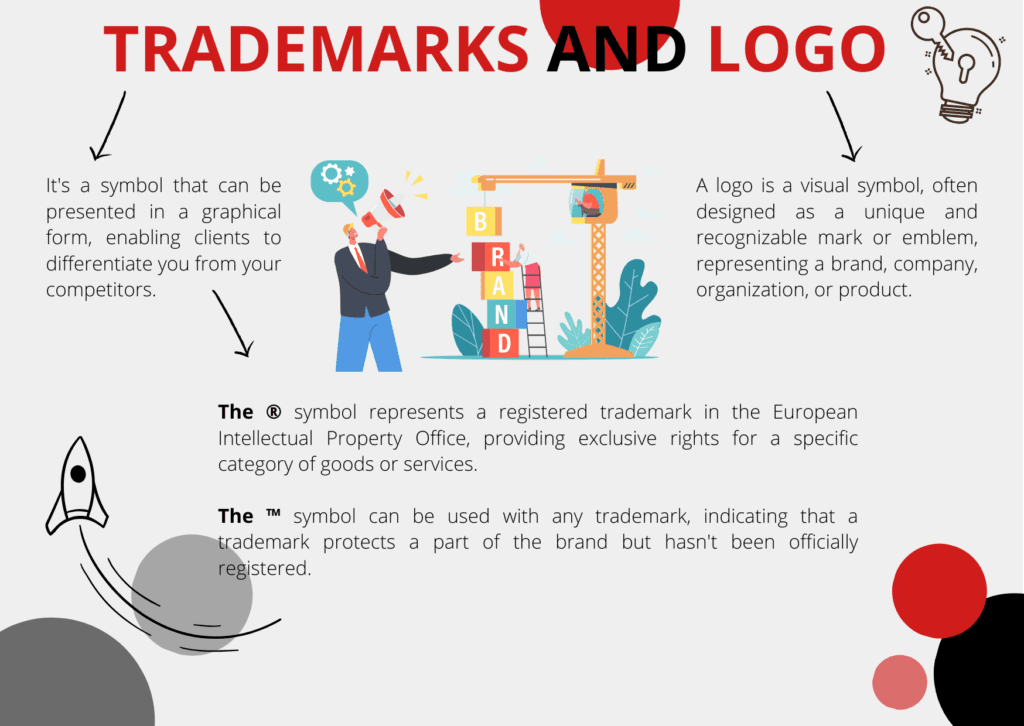In today’s world, brand identity holds great significance. People can recognize a brand through its logo, slogan, or even the font style. Whether you’re a leader or a startup, it’s essential to prioritize this critical element. Apart from creating your brand, you must safeguard it and its rights. Have you ever heard of trademarks? Do you understand their significance and how they can benefit your startup?
This article focuses on trademarks and industrial designs, which can help startups protect their brand. If you’re interested in this topic, read on!
Trademark and Its Benefits:
Trademarks can encompass a logo, a catchphrase, or anything that is part of your brand and distinct to your startup. It’s a symbol that can be presented in a graphical form, enabling clients to differentiate you from your competitors. Registering a trademark offers numerous advantages, such as:
- Exclusivity for Using the Trademark: It grants you exclusive rights to your mark, preventing competitors from adopting a similar mark.
- Protection: Without registration, you risk losing your trademark. If someone else uses your catchphrase or logo, your startup may have to rebrand entirely, including changing its internet domain.
- Credibility: The ® symbol signifies to your business partners and clients that you take your intellectual property and your startup’s name seriously.
Trademark vs. Registered Trademark:
Many people wonder about the difference between ® and ™ during registration.
® Registered Trademark: This symbol signifies a registered trademark in the European Intellectual Property Office. Registration provides exclusive rights for a specific category of goods or services, and only the entity that registered the mark may use it.
™ Trademark: This symbol can be used with any trademark. It indicates that a trademark protects a part of the brand but hasn’t been officially registered.
Taking care of your trademark and registering it can be beneficial and can help prevent many issues for startups.

What You Need to Know About Logos in Startups:
Before embarking on expensive marketing endeavors to promote your company, ensure that the elements of your brand identity belong to you and not someone else. It often happens that the CEO of a startup doesn’t have the copyrights to the logo, especially when someone else created the company or designed the logo as a commissioned work.
When you lack copyright to the logo, it’s essential not to use it, especially if you’ve already developed a distinct brand and are seeking to attract investors. During standard due diligence, the absence of rights regarding the logo will be discovered. This not only reduces the valuation of your startup but also generates additional costs.
Another question is how to obtain the rights to your own logo. You can achieve this through a written agreement with the creator of the work, in this case, the name or logo, where the author clearly states that they are transferring the copyright to you. Such an agreement should also outline the fields of exploitation in which you can use the work (e.g., on the Internet). Ensure that you have the right to make changes to the work and obtain appropriate statements from the author, confirming full compliance with the rights to the work they have created, for which they should be compensated and take responsibility. This minimizes losses in case it turns out that you paid for a logo that was plagiarized.
Feel free to reach out if you have any outsourcing questions. In your spare time, consider tuning into our podcast, Startup Stories, where we delve into the intricacies of startups and what makes them thrive.
